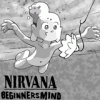I had a long think about this process. Tried it on a couple of things. It only really works (as written) when it's possible to accept that the other person isn't necessarily at fault.
In some cases, you cannot escape the fact that the other person DID act improperly and the hurt inflicted was intentional, or at least, their actions were so negligent or thoughtless as to make the situation truly "their fault".
An example would be an abusive parent, or someone who has sexually assaulted you, or someone who knowingly embezzled your life savings from you, etc.
You can't just say "Well, why should they be responsible for my emotions..." Obviously, they're not (no one is ever responsible for someone else's emotions). You MUST acknowledge that they hurt you on purpose, and that they intended to do you harm.
The only way to get rid of anger in that case is to forgive, and I don't mean "pretend it's okay". Some things are NEVER okay. To forgive is to let go of the debt. They DID harm you. They DO deserve your animosity. But carrying it around with you harms only yourself. They probably don't care at all if you're still angry, hurt, upset, whatever.
I compare forgiveness to erasing a debt. They do owe it to you, for sure, but you eventually realise you're NEVER going to collect it, so you write it off and stop carrying on your books and stop pursuing it. It doesn't mean you're saying it was okay never to pay you back. 
With some things in life, yeah, you can look at the situation and realise that you over reacted or that it was mutual misunderstanding or you have to take responsibility for your own emotions, etc. etc. But sometimes the ONLY thing you can do is let go and move forward without that burden.
May the light surround you, may you be blessed. May the light surround us, may we be blessed. May love and light surround us all, and may we all be healed and blessed. And so it is, and so it shall be, now and ever after.
Originally Posted by John Selby





 Reply With Quote
Reply With Quote




Bookmarks